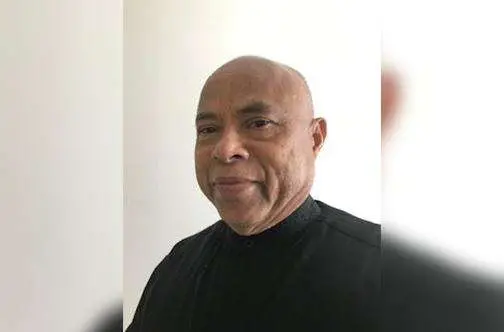
Rhoda Moy Crawford – an energetic Member of Parliament
Last week, Rhoda Moy Crawford, Member of Parliament (MP) for Manchester Central, gave her maiden budget presentation on the state of her constituency in Parliament. If she seemed to have been bragging, she has clearly earned the right.
To begin with, she defeated the formidable Peter Bunting to become the first female MP in a hitherto male-dominated constituency. Furthermore, in her short stint she has been able to catalogue a number of achievements in the constituency, some of which seemed to have eluded her predecessors in their long stay at the wicket.
What shone through in her presentation were her palpable enthusiasm and gratitude to be serving the Manchester Central constituency, which is a challenging proposition as it includes the important town of Mandeville with its unique characteristics in that part of the country.
The perennial problem of poor water supply to the town and surrounding areas persists. There are deep rural areas which do not have good roads and this has been a bane to farmers and others who depend on this amenity.
Also, any Member of Parliament has to meander through competing expectations – those of the Mandeville cultural milieu, who consider themselves part of the wealthy gentry, and rural folks, with little income derived from agriculture. The two main bauxite plants that have supported the parish, and Mandeville in particular, are not in production. The Rusal plant at Kirkvine is a shell of its former self. The Chinese Jiuquan Iron and Steel Company (JISCO) plant at Alpart in Nain, St Elizabeth, is still closed.
So, to be a successful MP in that neck of the woods calls for hard work and dedication. It calls for a recognition of the cardinal principle of political leadership – when people repose trust in you as a political leader, you must work assiduously to promote their health, welfare, and general well-being. It would seem that Crawford is seized with an understanding of this principle. Whether she holds to it as a philosophical framework for what she does is to be seen. Whether she can sustain the pace that she has so far charted is also to be seen. But what is not lacking in her approach is a genuine love for the work and concern for the people to whom she has committed herself.
I do not want to breathe too easily on this, but there seems to be an emerging narrative that younger Members of Parliament are seized with the sense of what service to their constituents means. Some names come readily to mind – Pearnel Charles Jr, Juliet Cuthbert-Flynn, Juliet Holness, and Floyd Green of the Jamaica Labour Party (JLP), as well as Julian Robinson of the People’s National Party (PNP). Insofar as this is a paradigm shift in their thinking about good political governance, it is to be welcomed and encouraged. They, along with their colleagues, must be held to the highest canons of accountability and moral probity. The people of Jamaica deserve this.
Crawford lamented the “bureaucracy and shortcomings” that plague state agencies. “The time has come,” she said, “for us to accelerate our examination of systems and processes to determine what needs to be revamped and/or revised to allow for greater efficiencies and value for spend. While, at the same time, we must begin to subject each responsible officer in our state agencies and the elected officials in central and local government to the same levels of scrutiny and accountability.” She is not alone in this lament. It is not different from the frustrations that Jamaicans from all walks of life have to contend with when dealing with government agencies. Her sentiments come against the corruption and condescension that have bedevilled the system since Independence.
But Crawford and her colleagues can now do something about this. It is within their grasp to effect the change that can lead to a more workable bureaucratic culture that can serve the interests of the people of Jamaica and not only the few who wield influence and can exert pressure on politicians.
Lamenting what is taking place may be a start, but they must resolve to stand stoutly against the nepotism, cronyism, and political patronage that are all part of the disease which feeds the inefficiency and lack of productivity in the public service. They must get angry enough to challenge the systems so that meaningful change can be achieved. They must move with alacrity, resoluteness, and determination to correct them.
And this must be a collective effort between our two major political parties and stakeholders in the society. This is why it is important that the PNP gets its act together and become a viable Opposition in which we can once again repose confidence. The cisterns are so broken there that one seriously wonders when the long drought that has plagued the party will end. There is a serious trust deficit to be overcome and one hopes that they can resolve the differences that are plaguing them and present themselves to the people as an organisation to be taken seriously. They must end the political cannibalism. Stop ‘nyamming’ up one another!
New JDF head
Commodore Antonette Wemyss-Gorman has been appointed the new head of the Jamaica Defence Force (JDF). She is the first woman to be so appointed, and many, especially among women, have hailed the appointment as a victory for women.
But it might be a disservice to Wemyss-Gorman to characterise her appointment in mere gender terms. Her worth should be judged on the basis of her work over the years in the JDF which, from all indications, has been stellar. But I understand the sentiment as this is the first time that a woman is being appointed to this high office in a world where the top echelons of military service is dominated by males.
This column wishes her all the best as she takes up her appointment early next year.
Dr Raulston Nembhard is a priest, social commentator, and author of the books Finding Peace in the Midst of Life’s Storm and Your Self-esteem Guide to a Better Life . Send comments to the Jamaica Observer or stead6655@aol.com.

























